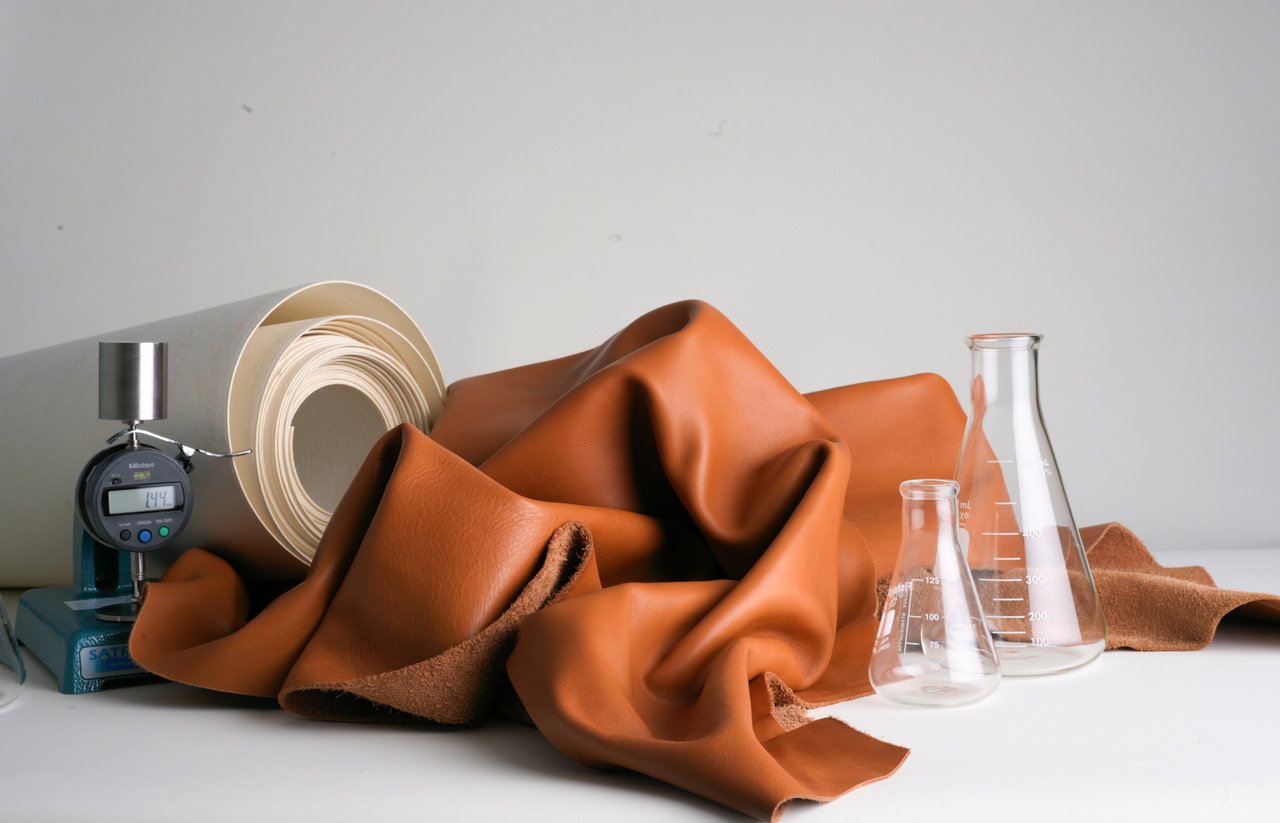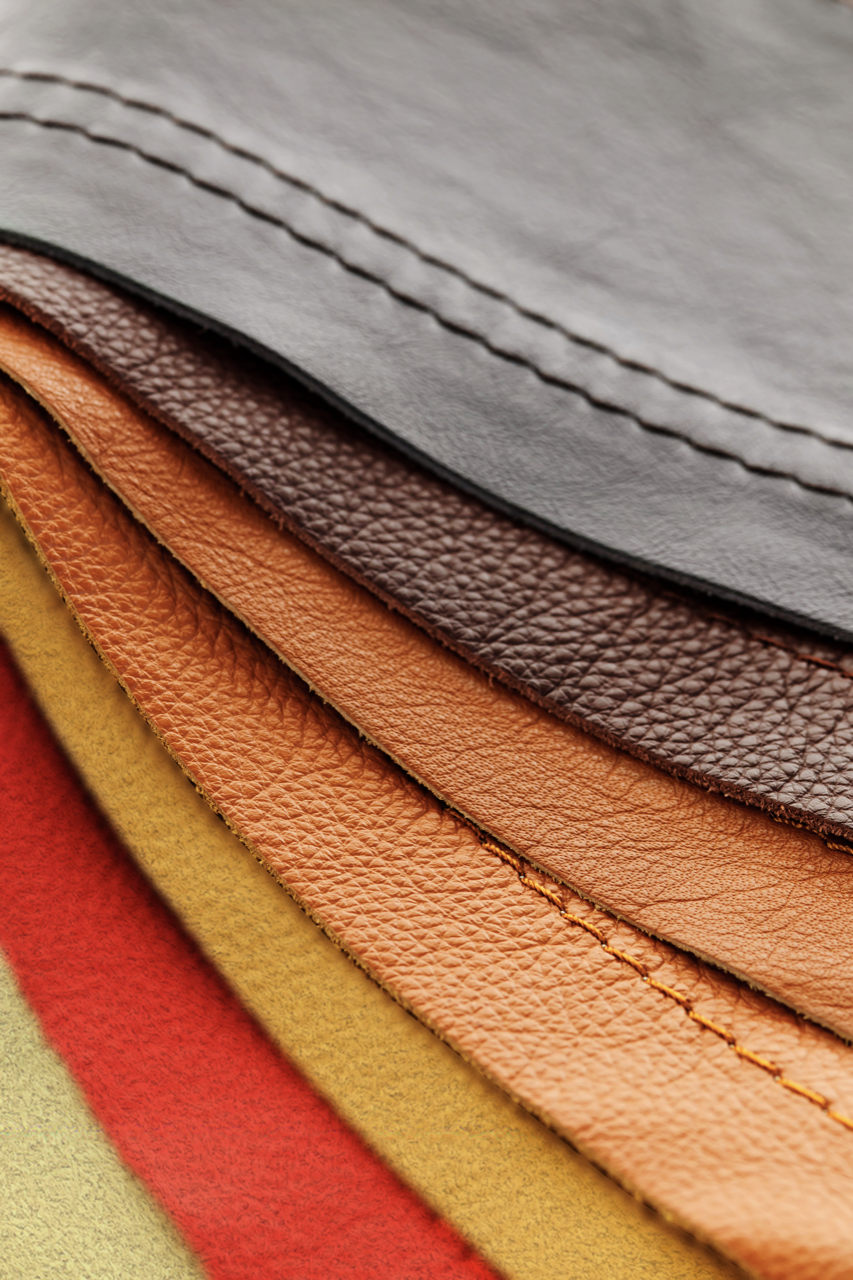Revolutionizing Industries: Modern Meadow's Sustainable Biomaterials Shaping The Future
In a world where sustainability has become an urgent necessity, one company is pushing the boundaries of innovation to transform industries as we know them. Modern Meadow, a leader in sustainable biomaterials, has been making waves with their groundbreaking approach to material production.
From fashion to automotive and beyond, their biofabricated materials are paving the way for a more sustainable future. In this exclusive interview, we delve into Modern Meadow's commitment to transparency, traceability, and the circular economy, as well as their aspirations for driving the global adoption of sustainable biomaterials.
INTERVIEW WITH CATHERINE ROGGERO-LOVISI, CEO MODERN MEADOW
Catherine, can you tell us more about Modern Meadow's mission and how you aim to be a catalyst for the wellness of people and the planet?
Modern Meadow was founded with the goal of addressing the pressing global challenge of unsustainable materials that are integral to our way of life. Our mission is to reimagine how the world approaches materials, sustainability, and consumption in order to build a more regenerative and circular world. By enabling alternative, nature-inspired materials to replace animal-derived and virgin petrochemical-based materials, we strive to create a positive impact on both people and the planet.
Biofabrication is at the core of Modern Meadow's approach to sustainability. Could you explain how biofabrication allows you to create materials that support sustainability while balancing performance, aesthetics, and accessibility?
Biofabrication is a powerful tool that allows us to harness the tremendous potential of nature. Specifically, we focus on utilizing proteins, which are nature's "building blocks," to create materials with unique functional properties. By combining our expertise in biology and material science, we can design and select proteins that provide materials with properties such as dyeability, breathability, abrasion resistance, and tensile strength. This enables us to create materials that have the look and feel of traditional materials like leather or silk, but without the need for animal inputs or virgin petrochemicals. Sustainability is at the core of our biofabrication approach, as we aim to replace environmentally taxing inputs and reduce the overall environmental footprint of material production.
Modern Meadow recently announced a strategic partnership with BASF to revolutionize the material industry. Can you share more about this collaboration and how it will bring about a sustainable, animal-free material of the future? The partnership with BASF introduces Bio-VERA™, an innovative substrate that integrates Ultramid® Ccycled® solution. What makes Bio-VERA™ a game-changing advancement in sustainable biomaterials, and how does it reduce reliance on animal-based sources? The fashion industry is one of the sectors that can benefit from sustainable biomaterials. How do you envision Bio-VERA™ transforming the fashion industry, and what potential impact can it have on sustainability in fashion?
Our partnership with BASF is an exciting collaboration that aims to drive sustainability and innovation in the material industry. Through this partnership, we have introduced Bio-VERA™, a sustainable, animal-free biomaterial that closely resembles traditional leather, suede, or chamois in terms of look, feel, and aging. What sets Bio-VERA™ apart is its circularity aspect. The base material, produced from BASF's Ultramid® Ccycled® solution, is derived from discarded car tires and other post-consumer waste sources. This not only reduces reliance on animal-based sources but also promotes the repurposing of waste materials.
In the fashion industry, Bio-VERA™ has the potential to transform sustainability practices. Its extensive range of colors and finishing options, combined with its lighter and more durable nature, opens up new possibilities for apparel, footwear, and automotive industries. By offering a sustainable alternative to traditional materials, Bio-VERA™ can help reduce the industry's environmental footprint, mitigate impacts on nature and biodiversity, and enable a more traceable and circular supply chain. It provides brands and consumers with a choice that aligns with their sustainability values without compromising on performance or aesthetics.
Modern Meadow has also partnered with Navis TubeTex to redefine dyeing, finishing, and coating equipment in the textile industry. Can you explain how the integration of Modern Meadow’s Bio-Alloy technology with Navis TubeTex’s foam technology equipment enhances the environmental profile of the textile manufacturing process? Modern Meadow and Navis TubeTex aim to reduce water usage, chemical waste, and energy consumption in textile manufacturing. Can you give us some insights into how this partnership will help manufacturers achieve these sustainability goals? The Bio-FREED™ powered by Bio-Alloy is a breakthrough technology that improves the dyeability process, particularly for blended textiles. Could you elaborate on the advantages of Bio-FREED™ and how it contributes to a faster and more sustainable manufacturing process?
Our partnership with Navis TubeTex is focused on revolutionizing the textile manufacturing process to enhance its environmental profile. By integrating Modern Meadow's Bio-Alloy technology with Navis TubeTex's foam technology equipment, we aim to reduce water usage, chemical waste, and energy consumption in dyeing, finishing, and coating processes.
The Bio-FREED™ powered by Bio-Alloy is a breakthrough technology that offers a greener, one-step fiber agnostic dyeing system. It replaces the traditional three-step dyeing process used for blended fabrics with a more efficient one-step process. The Bio-Alloy™ technology enables the delivery of dyes via foam, which significantly reduces resource usage. The production speed on the foaming equipment is also high, contributing to a lower carbon footprint. Additionally, the Bio-FREED™ technology eliminates the need for additional chemicals and reduces the overall water and energy consumption in the dyeing process.
This partnership with Navis TubeTex empowers manufacturers to achieve their sustainability goals by providing a more efficient and eco-friendly textile manufacturing process. By reducing water usage, chemical waste, and energy consumption, manufacturers can significantly minimize their environmental impact while still maintaining high-quality, vibrant, and durable dyeing results. The integration of Modern Meadow's Bio-Alloy technology with Navis TubeTex's foam technology equipment offers an innovative solution that not only improves the sustainability of the manufacturing process but also enhances its speed and productivity.
Modern Meadow's approach to sustainability extends beyond materials and manufacturing processes. Can you elaborate on the company's commitment to transparency, traceability, and the circular economy? How does Modern Meadow ensure that its materials and products meet rigorous sustainability standards?
Transparency, traceability, and the circular economy are fundamental pillars of Modern Meadow's sustainability commitment. We recognize the importance of providing customers with clear information about the origins and environmental impact of our materials and products. To achieve this, we implement rigorous traceability systems that track each step of the production process, from the sourcing of raw materials to the manufacturing and distribution of our products.
By embracing the circular economy, we aim to minimize waste and maximize resource efficiency. We actively explore opportunities to reuse and recycle materials, ensuring that the materials we produce can have a second life or be repurposed into new products. Our partnership with BASF, for example, highlights our dedication to using recycled and upcycled materials as feedstocks for our biomaterials.
To ensure that our materials and products meet rigorous sustainability standards, we adhere to internationally recognized certifications and standards. We conduct extensive life cycle assessments and are committed to continuous improvement in our processes and materials. Through collaboration with industry experts, NGOs, and other stakeholders, we strive to set and exceed sustainability benchmarks, ensuring that our materials and products contribute positively to a more sustainable future.
Looking ahead, what are Modern Meadow's aspirations for the future of sustainable biomaterials and their impact on industries like fashion, automotive, and beyond? How do you envision Modern Meadow's role in driving the adoption of sustainable biomaterials on a global scale?
Modern Meadow envisions a future where sustainable biomaterials are the norm across industries. We aspire to be at the forefront of this transformation, driving the adoption of sustainable biomaterials on a global scale. Our focus extends beyond fashion and automotive industries; we also see potential for our materials in areas such as consumer goods, interior design, and more.
By continuously pushing the boundaries of biofabrication and collaborating with industry leaders, we aim to develop an extensive portfolio of sustainable biomaterials that can replace traditional animal-derived and petrochemical-based materials. Our goal is to offer materials with superior performance, aesthetics, and functionality, ensuring that sustainability does not compromise quality or consumer experience.
Through strategic partnerships, like the ones we have formed with BASF and Navis TubeTex, we seek to revolutionize entire supply chains, making sustainable biomaterials the go-to choice for manufacturers and brands. By demonstrating the economic and environmental benefits of these materials, we hope to inspire widespread adoption and create a positive ripple effect throughout industries, ultimately making a significant contribution to the wellness of people and the planet.
HOW DO YOU FEEL ABOUT FASHION?
COMMENT OR TAKE OUR PAGE READER SURVEY
Featured











As more people look for high-quality kratom, to buy premium white vein kratom online has become the preferred choice for many enthusiasts.